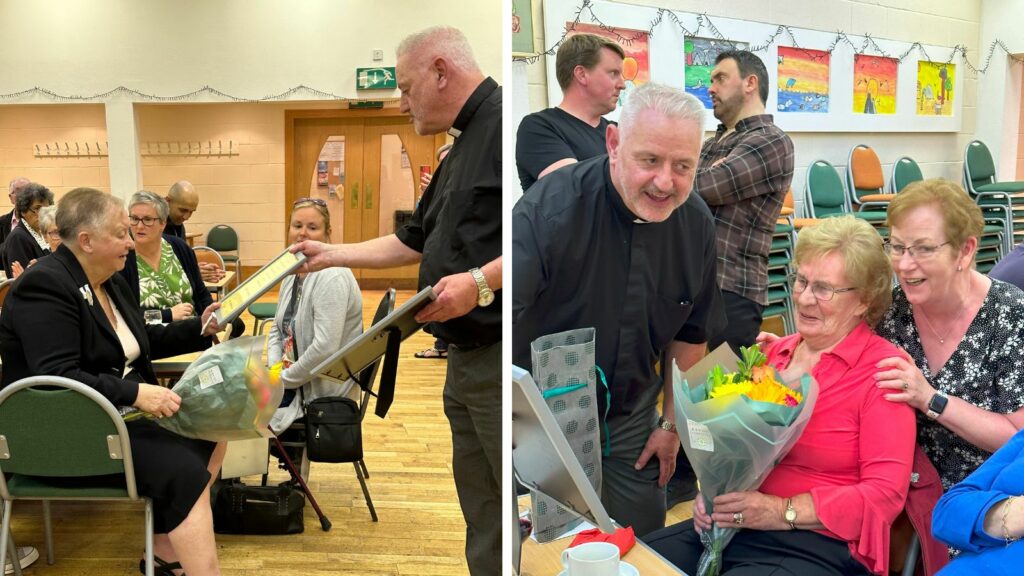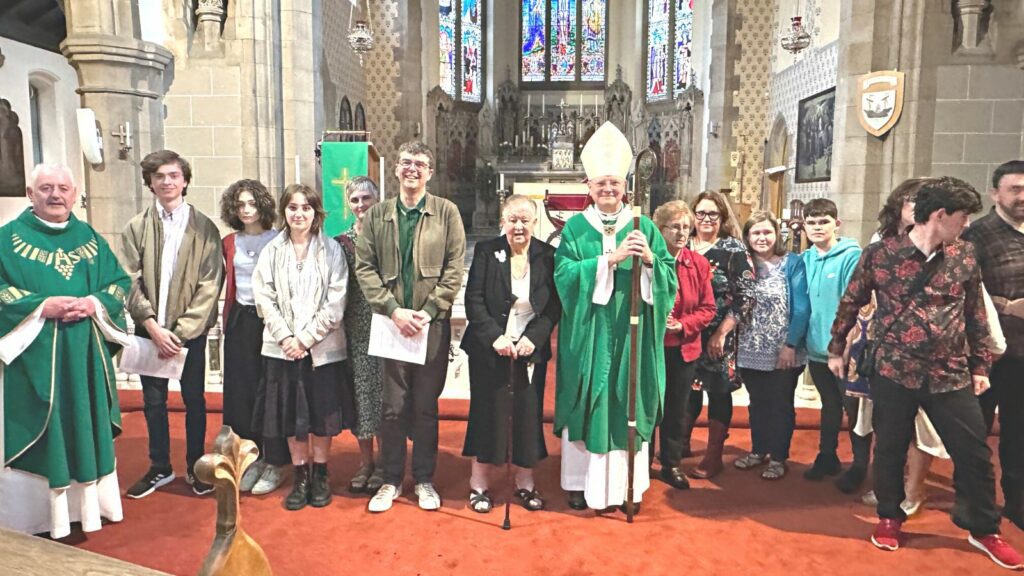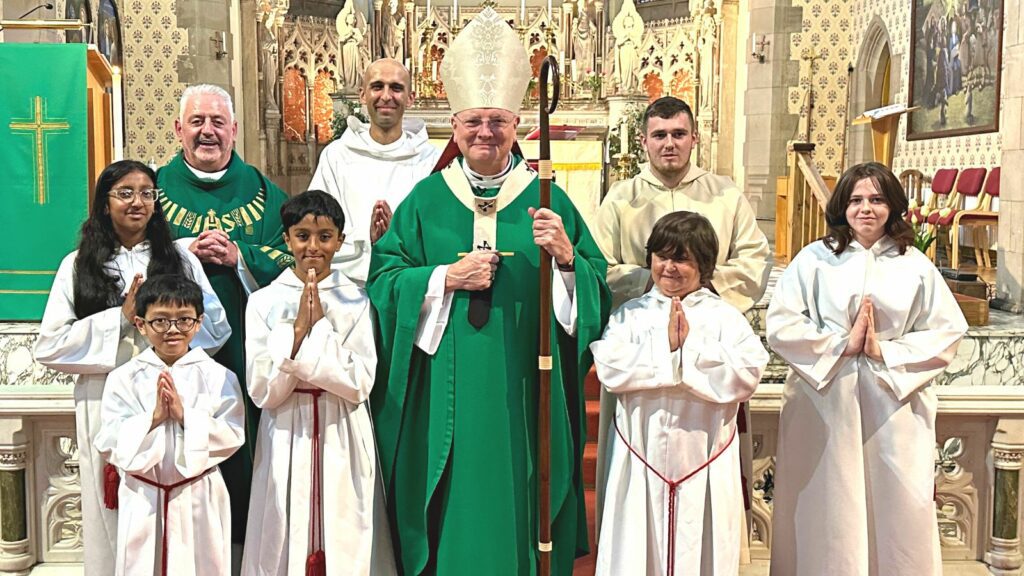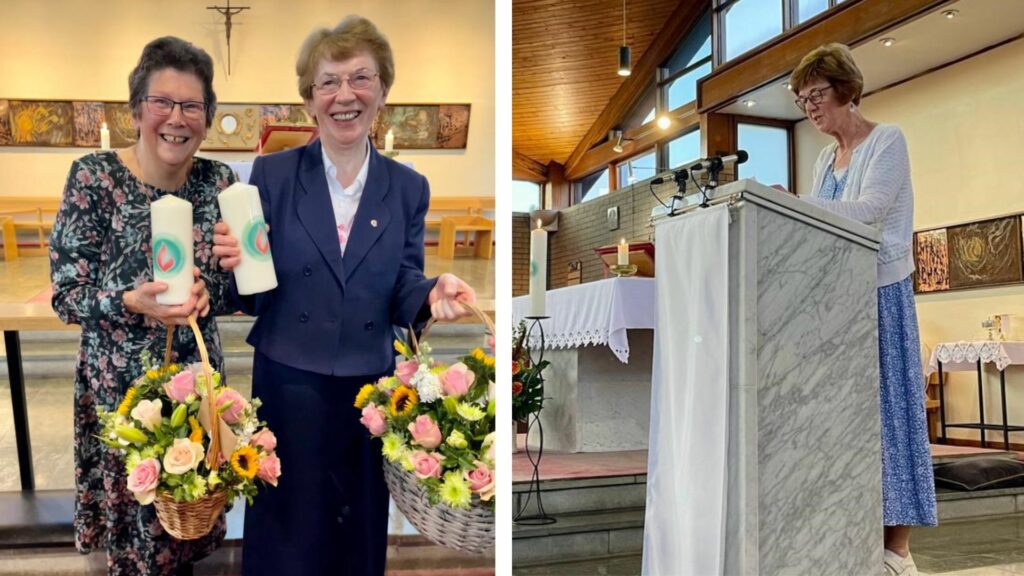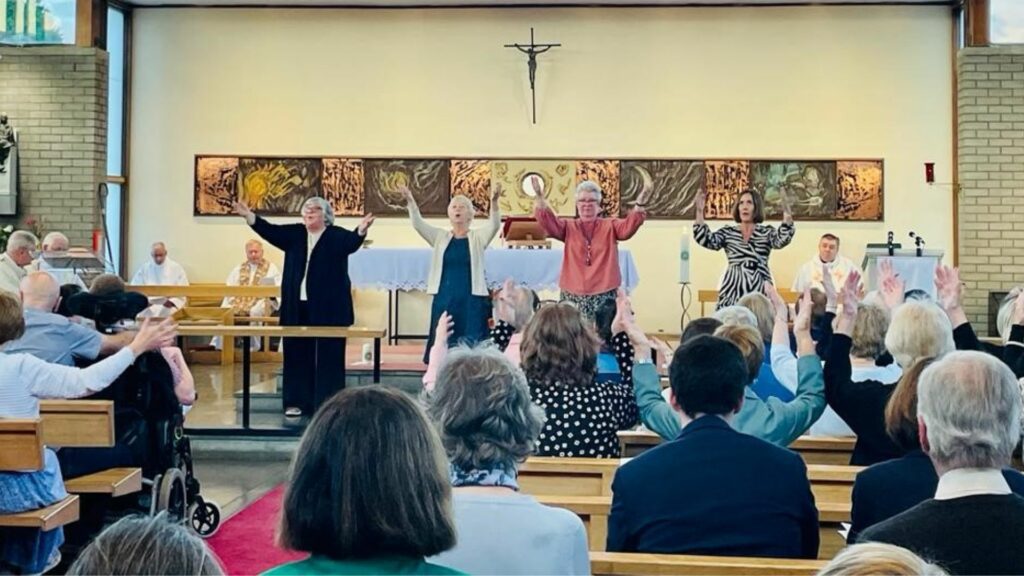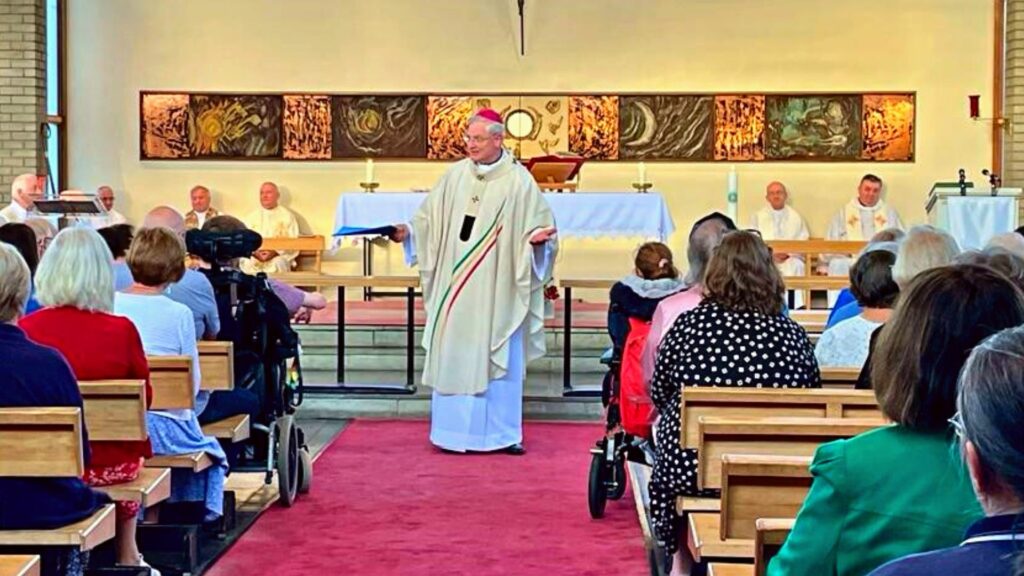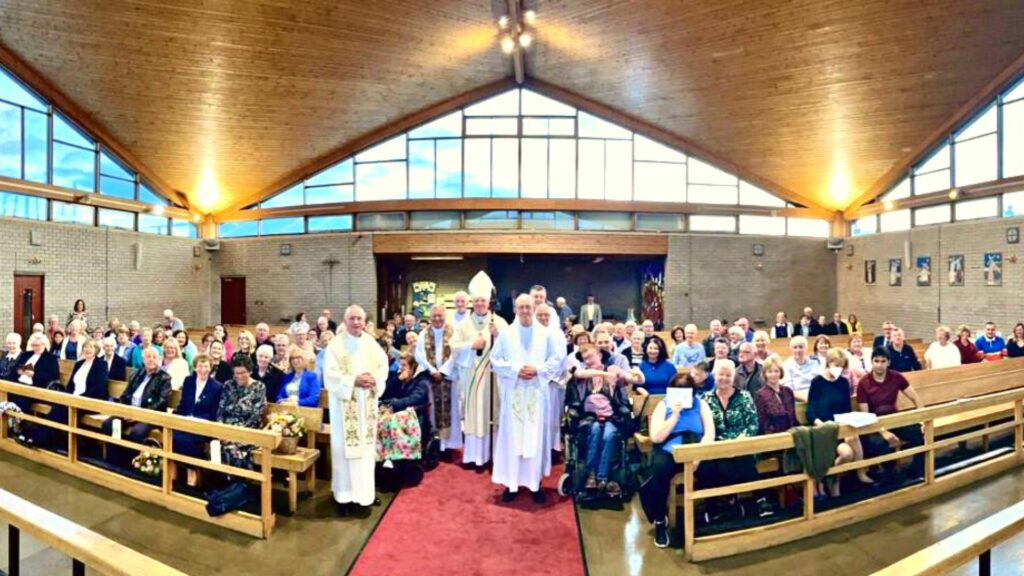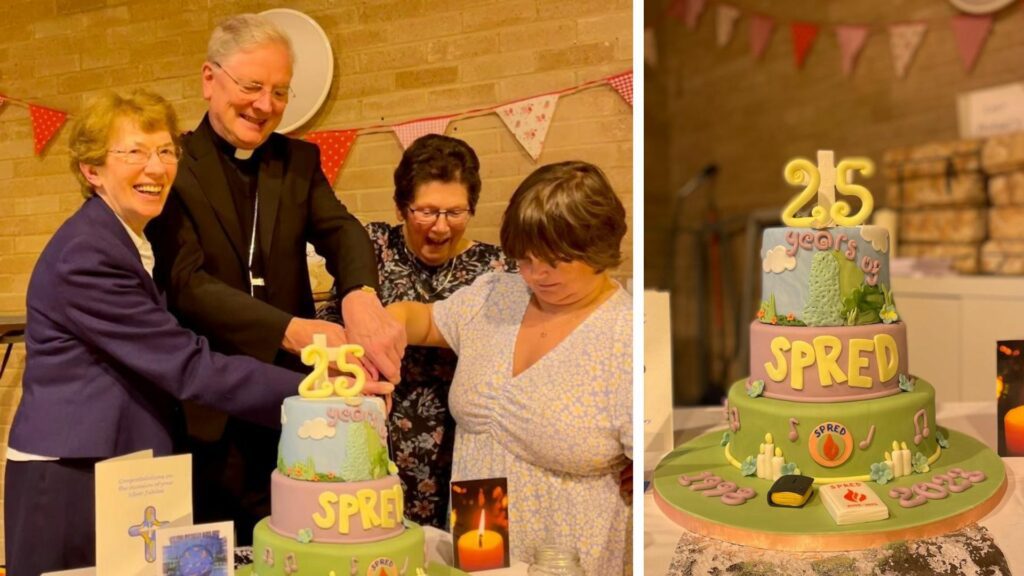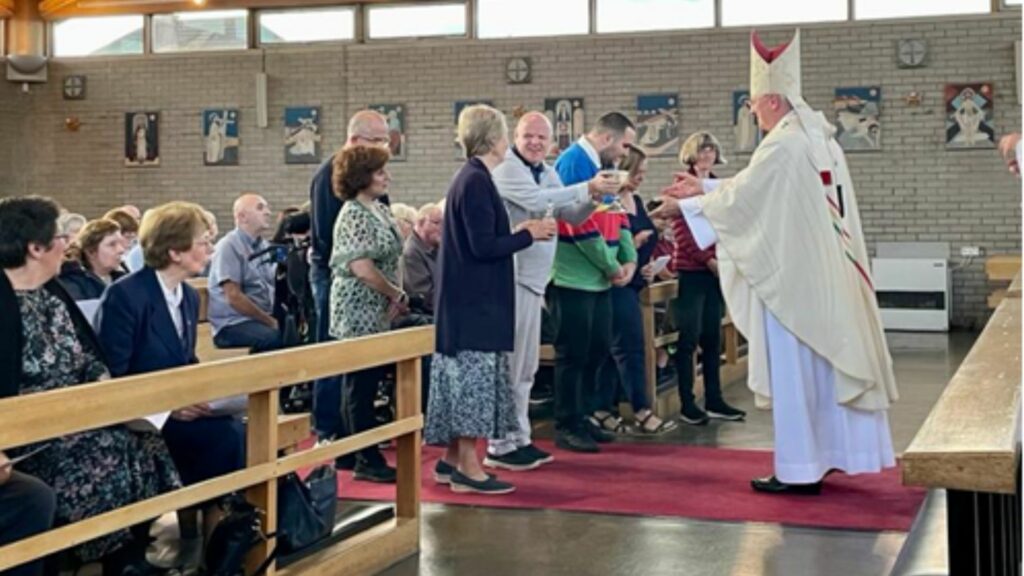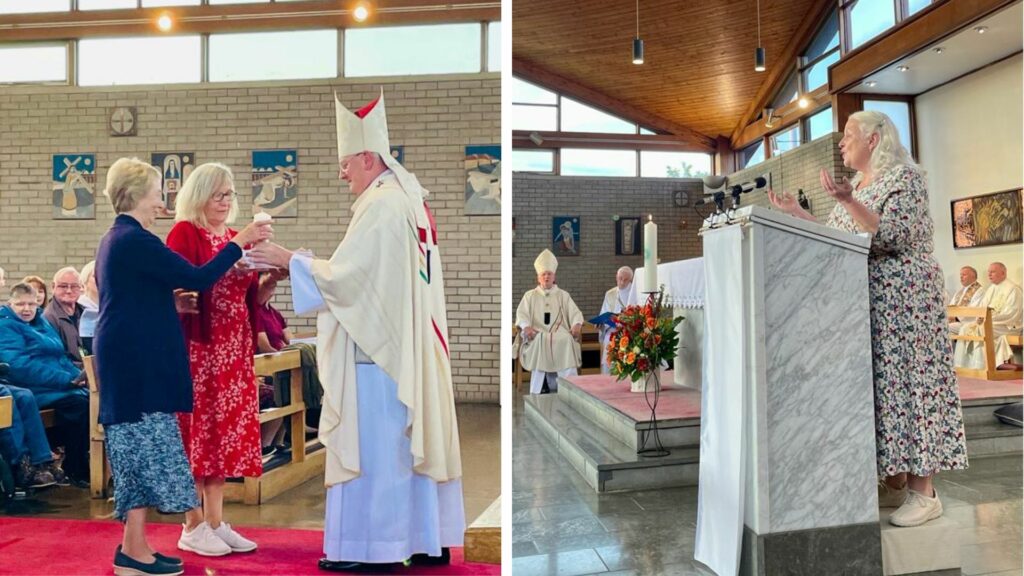'Let Justice and Peace Flow' is the theme chosen for Season of Creation 2023.
It is the ecumenical celebration held each year from 1 September, World Day of Prayer for the Care of Creation, to October 4th, the feast of St Francis of Assisi. Here is Pope Francis' message for the day...
***
Dear brothers and sisters!
“Let Justice and Peace Flow” is the theme of this year’s ecumenical Season of Creation, inspired by the words of the prophet Amos: “Let justice flow on like a river, righteousness like a never-failing stream” (5:24).
The evocative image used by Amos speaks to us of what God desires. God wants justice to reign; it is as essential to our life as God’s children made in his likeness as water is essential for our physical survival. This justice must flow forth wherever it is needed, neither remaining hidden deep beneath the ground nor vanishing like water that evaporates before it can bring sustenance.
God wants everyone to strive to be just in every situation, to live according to his laws and thus to enable life to flourish. When we “seek first the kingdom of God” (Mt 6:33), maintaining a right relationship with God, humanity and nature, then justice and peace can flow like a never-failing stream of pure water, nourishing humanity and all creatures.
On a beautiful summer day in July 2022, during my pilgrimage to Canada, I reflected on this on the shores of Lac Ste. Anne in Alberta. That lake has been a place of pilgrimage for many generations of indigenous people. Surrounded by the beating of drums, I thought: “How many hearts have come here with anxious longing, weighed down by life’s burdens, and found by these waters consolation and strength to carry on! Here, immersed in creation, we can also sense another beating: the maternal heartbeat of the earth.
Just as the hearts of babies in the womb beat in harmony with those of their mothers, so in order to grow as people, we need to harmonize our own rhythms of life with those of creation, which gives us life”. [1]
During this Season of Creation, let us dwell on those heartbeats: our own and those of our mothers and grandmothers, the heartbeat of creation and the heartbeat of God. Today they do not beat in harmony; they are not harmonized in justice and peace.
Too many of our brothers and sisters are prevented from drinking from that mighty river. Let us heed our call to stand with the victims of environmental and climate injustice, and to put an end to the senseless war against creation.
The effects of this war can be seen in the many rivers that are drying up. Benedict XVI once observed that: “the external deserts in the world are growing, because the internal deserts have become so vast”. [2] Consumerist greed, fuelled by selfish hearts, is disrupting the planet’s water cycle.
The unrestrained burning of fossil fuels and the destruction of forests are pushing temperatures higher and leading to massive droughts. Alarming water shortages increasingly affect both small rural communities and large metropolises.
Moreover, predatory industries are depleting and polluting our freshwater sources through extreme practices such as fracking for oil and gas extraction, unchecked mega-mining projects, and intensive animal farming. “Sister Water”, in the words of Saint Francis of Assisi, is pillaged and turned into “a commodity subject to the laws of the market” ( Laudato Si’, 30).
The United Nations Intergovernmental Panel on Climate Change has stated that acting now with greater urgency means that we will not miss our chance to create a more sustainable and just world.
We can and we must prevent the worst from happening. “Truly, much can be done” (ibid., 180), provided we come together like so many streams, brooks and rivulets, merging finally in a mighty river to irrigate the life of our marvellous planet and our human family for generations to come. So let us join hands and take bold steps to “Let Justice and Peace Flow” throughout our world.
How can we contribute to the mighty river of justice and peace in this Season of Creation? What can we, particularly as Christian communities, do to heal our common home so that it can once again teem with life? We must do this by resolving to transform our hearts, our lifestyles, and the public policies ruling our societies.
First, let us join the mighty river by transforming our hearts. This is essential for any other transformation to occur; it is that “ecological conversion” which Saint John Paul II encouraged us to embrace: the renewal of our relationship with creation so that we no longer see it as an object to be exploited but cherish it instead as a sacred gift from our Creator.
Furthermore, we should realize that an integral approach to respect for the environment involves four relationships: with God, with our brothers and sisters of today and tomorrow, with all of nature, and with ourselves.
As to the first of these relationships, Pope Benedict XVI spoke of the urgent need to recognize that creation and redemption are inseparably linked: “The Redeemer is the Creator and if we do not proclaim God in his full grandeur – as Creator and as Redeemer – we also diminish the value of the redemption”. [3]
Creation refers both to God’s mysterious, magnificent act of creating this majestic, beautiful planet and universe out of nothing and to the continuing result of that act, which we experience as an inexhaustible gift. During the liturgy and personal prayer in “the great cathedral of creation”, [4] let us recall the great Artist who creates such beauty, and reflect on the mystery of that loving decision to create the cosmos.
Second, let us add to the flow of this mighty river by transforming our lifestyles. Starting from grateful wonder at the Creator and his creation, let us repent of our “ecological sins”, as my brother, Ecumenical Patriarch Bartholomew, has urged. These sins harm the world of nature and our fellow men and women.
With the help of God’s grace, let us adopt lifestyles marked by less waste and unnecessary consumption, especially where the processes of production are toxic and unsustainable. Let us be as mindful as we can about our habits and economic decisions so that all can thrive – our fellow men and women wherever they may be, and future generations as well. Let us cooperate in God’s ongoing creation through positive choices: using resources with moderation and a joyful sobriety, disposing and recycling waste, and making greater use of available products and services that are environmentally and socially responsible.
Lastly, for the mighty river to continue flowing, we must transform the public policies that govern our societies and shape the lives of young people today and tomorrow. Economic policies that promote scandalous wealth for a privileged few and degrading conditions for many others, spell the end of peace and justice.
It is clear that the richer nations have contracted an “ecological debt” that must be paid (cf. Laudato Si’, 51). [5] The world leaders who will gather for the COP28 summit in Dubai from 30 November to 12 December next must listen to science and institute a rapid and equitable transition to end the era of fossil fuel. According to the commitments undertaken in the Paris Agreement to restrain global warming, it is absurd to permit the continued exploration and expansion of fossil fuel infrastructures.
Let us raise our voices to halt this injustice towards the poor and towards our children, who will bear the worst effects of climate change. I appeal to all people of good will to act in conformity with these perspectives on society and nature.
Another parallel perspective has to do with the Catholic Church’s commitment to synodality. This year, the closing of the Season of Creation on 4 October, the feast of Saint Francis of Assisi, will coincide with the opening of the Synod on Synodality.
Like rivers in nature, fed by myriad tiny brooks and larger streams and rivulets, the synodal process that began in October 2021 invites all those who take part on a personal or community level, to coalesce in a majestic river of reflection and renewal. The entire People of God is being invited to an immersive journey of synodal dialogue and conversion.
So too, like a river basin with its many tiny and larger tributaries, the Church is a communion of countless local Churches, religious communities and associations that draw from the same shared waters. Each source adds its unique and irreplaceable contribution, until all flow together into the vast ocean of God’s loving mercy.
In the same way that a river is a source of life for its surroundings, our synodal Church must be a source of life for our common home and all its inhabitants. In the same way that a river gives life to all kinds of animal and plant life, a synodal Church must give life by sowing justice and peace in every place it reaches.
In Canada, in July 2022, I spoke of the Sea of Galilee where Jesus brought healing and consolation to many people and proclaimed “a revolution of love”. Lac Ste. Anne, I learned, is also a place of healing, consolation and love, a place that “reminds us that fraternity is genuine if it unites those who are far apart, [and] that the message of unity that heaven sends down to earth does not fear differences, but invites us to fellowship, a communion of differences, in order to start afresh together, because we are all pilgrims on a journey”. [6]
In this Season of Creation, as followers of Christ on our shared synodal journey, let us live, work and pray that our common home will teem with life once again. May the Holy Spirit once more hover over the waters and guide our efforts to “renew the face of the earth” (cf. Ps 104:30).
Rome, Saint John Lateran, 13 May 2023
[1] Homily at Lac Ste. Anne, Canada, 26 July 2022.
[2] Homily for the Solemn Inauguration of the Petrine Ministry, 24 April 2005.
[3] Conversation at the Cathedral of Bressanone, 6 August 2008.
[4] Message for the World Day of Prayer for the Care of Creation, 21 July 2022.
[5] “A true ‘ecological debt’ exists, particularly between the global north and south, connected to commercial imbalances with effects on the environment, and the disproportionate use of natural resources by certain countries over long periods of time” ( Laudato Si’, 51).
[6] Homily at Lac Ste. Anne, Canada, 26 July 2022.
